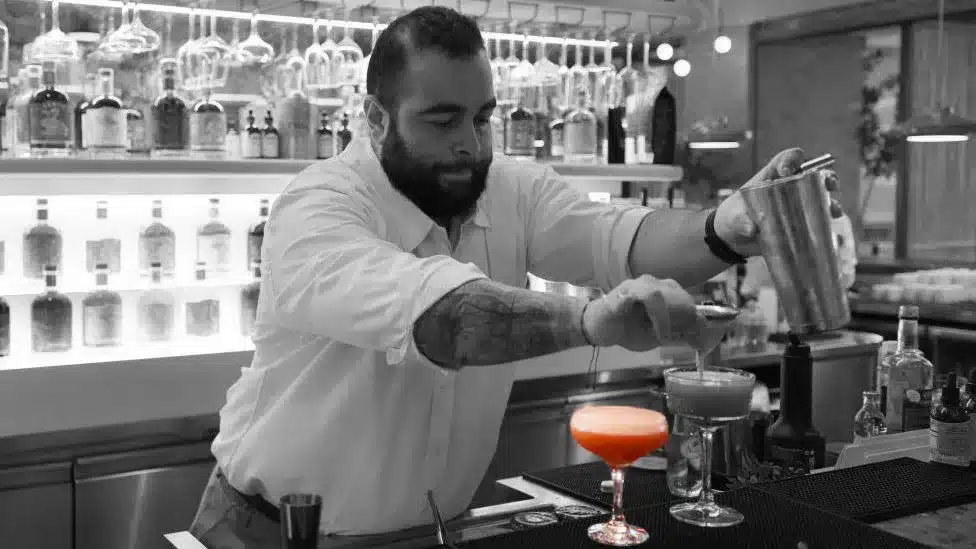In a remarkable departure from decades of stringent alcohol prohibition, Saudi Arabia is poised to open its inaugural liquor store, a venture exclusively catering to diplomats. This unprecedented move has sparked discussions about the Kingdom’s evolving social landscape and its potential ramifications, both locally and internationally.
The Liquor Store Opening: A Paradigm Shift
Sources with insider knowledge have confirmed that the new liquor store will be strategically situated within Riyadh’s diplomatic quarter. Importantly, it will be “strictly restricted” to non-Muslims, adhering to Saudi Arabia’s long-standing religious and cultural norms. The store’s inauguration is anticipated to occur in the ensuing weeks, marking a significant turning point in the Kingdom’s approach to alcohol.
Context and Significance: Breaking the Alcohol Taboo
Saudi Arabia has long maintained one of the most stringent alcohol bans globally, spanning nearly seven decades. Even neighbouring Gulf states like the UAE and Qatar have permitted limited exceptions. While underground alcohol consumption has persisted within the Kingdom, often facilitated through diplomatic pouches, the introduction of a legal channel for acquiring alcohol represents a noteworthy departure from established norms.
The Diplomatic Angle: New Regulations and Oversight
The decision to inaugurate the liquor store follows recent regulatory measures aimed at curbing the “improper exchange” of alcohol between diplomatic residences. Saudi authorities are rolling out a fresh regulatory framework designed to meticulously manage the importation and distribution of alcohol to diplomatic missions, ensuring greater transparency and control.
Social Reforms and Saudi 2030 Vision: A Broader Context
Saudi Crown Prince Mohammed bin Salman has been at the forefront of a series of sweeping social reforms, emblematic of the Saudi 2030 Vision. These transformative reforms have encompassed ground-breaking initiatives such as granting women the right to drive, hosting public concerts, and expanding the entertainment industry. Nevertheless, the prospect of overturning the longstanding alcohol ban had elicited substantial resistance from the Saudi populace.
Historical Context: The Origins of the Alcohol Prohibition
The roots of Saudi Arabia’s stringent alcohol ban can be traced back to a pivotal incident in 1952. This incident involved Prince Mishari bin Abdulaziz Al Saud and a British diplomat named Cyril Ousman. At a soirée hosted by the diplomat, who held the position of British vice-consul in Jeddah, a tragic confrontation ensued. In response to Ousman’s refusal to serve additional alcohol to the young prince, a fateful shooting incident unfolded, resulting in Ousman’s death and a life sentence for Prince Mishari. This tragic episode prompted King Abdulaziz Ibn Saud, the visionary founder of modern Saudi Arabia, to enact a comprehensive ban on alcohol within the nation.
Expatriate Perspective: Implications and Observations
From the expatriate community’s vantage point, the inauguration of the liquor store signifies a momentous development. Although the store is exclusively designated for diplomats, it symbolizes a shift in Saudi Arabia’s approach to certain social conventions and constraints. Expatriates, while not direct beneficiaries of this development, may perceive it as indicative of a broader trend towards greater societal adaptability and flexibility in the Kingdom’s future trajectory.
Economic and Cultural Implications: A Balancing Act
The introduction of a diplomatic liquor store is emblematic of the Saudi government’s endeavour to strike a balance between upholding conservative traditions and embarking on an ambitious journey of economic diversification and social reforms. The economic repercussions of this decision are noteworthy, as it may open new avenues for trade and international cooperation while fostering an environment conducive to foreign investment.
Tourism and Foreign Investment: A Potential Catalyst
Saudi Arabia, as it evolves, seeks to establish itself as a tourist destination and an attractive hub for foreign investment. The introduction of a diplomatic liquor store, albeit a niche development, may serve as a signal to potential investors and tourists that the Kingdom is committed to creating an environment that accommodates diverse cultural preferences and practices.
Navigating a Changing Landscape
To conclude, the impending inauguration of Saudi Arabia’s first liquor store for diplomats represents a historic juncture in the Kingdom’s evolving social and cultural landscape. It underscores the government’s aspiration to harmonize longstanding traditions with modernization efforts. As Saudi Arabia continues on its path of transformation, both residents and expatriates will closely observe how these shifts impact the Kingdom’s cultural and social dynamics. The diplomatic liquor store, though a modest endeavour, symbolizes the Kingdom’s readiness to adapt to an ever-changing global landscape while preserving its distinctive identity.

